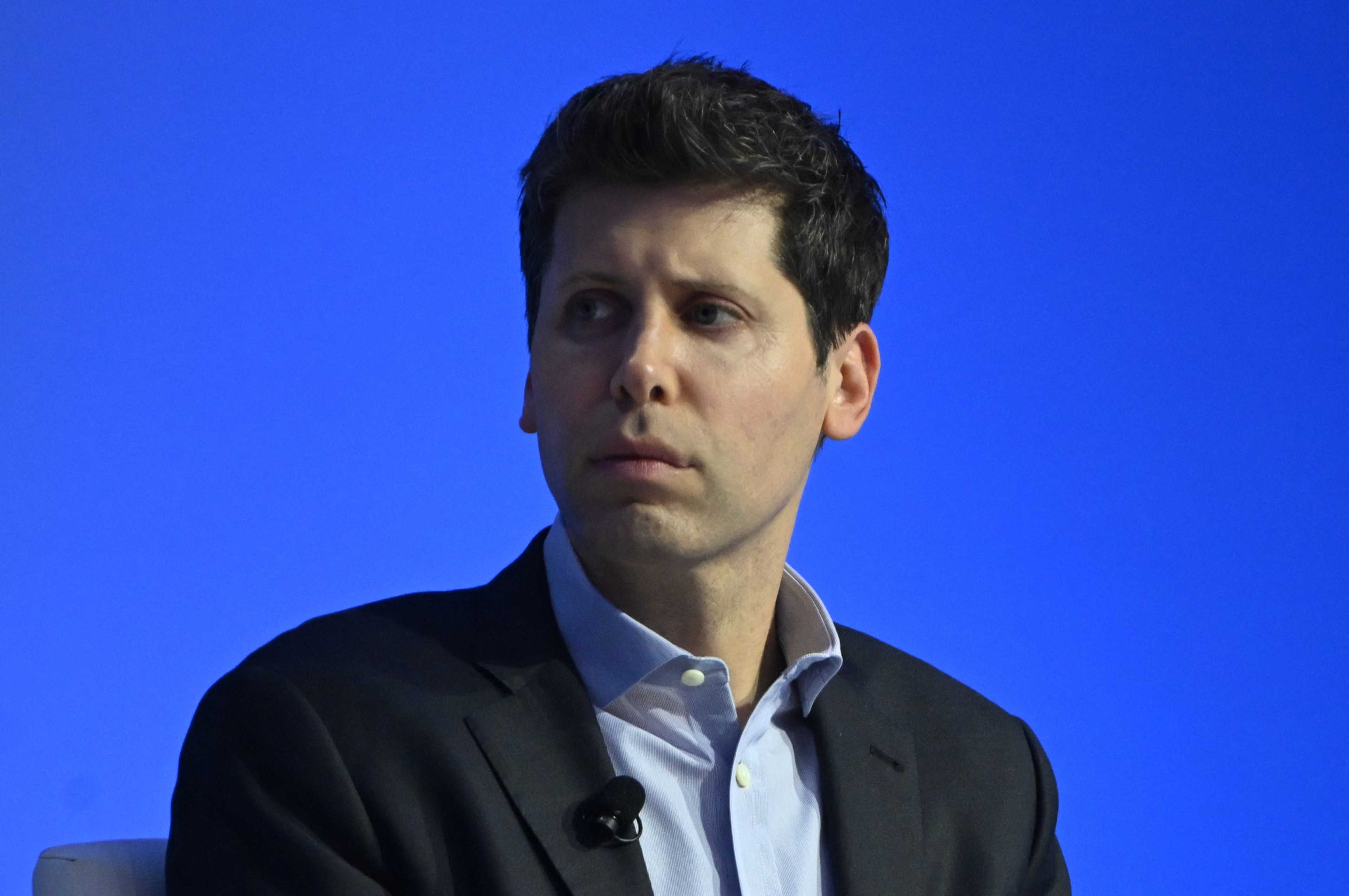A day after Sam Altman was ousted as CEO of OpenAI, Silicon Valley and beyond were waiting with bated breath to see whether his next move would be to start a new company—or negotiate a return to the San Francisco firm best known for making ChatGPT.
Altman’s sudden firing on Friday set off a chain reaction of a number of other executives and researchers—like OpenAI President Greg Brockman—stepping down in solidarity.
Altman’s dismissal may have been related to a long-standing divide in the AI community, with one side that sees AI as an enormous business opportunity and those who are concerned about the dangers of AI’s rapid advancement.
READ MORE: How OpenAI CEO Sam Altman Was Fired by Rival Board Members
By Saturday afternoon, the Verge (opens in new tab) and the New York Times were reporting (opens in new tab) that OpenAI’s board was attempting to bring Altman back.
Five things we learned from our bare-all interview with Sam Altman

Meanwhile, The Information (opens in new tab) and rumors (opens in new tab) pointed to Altman launching his own venture.
Altman responded on Friday night to his firing with two cryptic posts on X, formerly known as Twitter, in which he thanked his supporters while comparing the news to reading one’s eulogy. He also alluded to not having any shares in the company.
OpenAI’s board oversees the nonprofit parent organization that controls the for-profit subsidiary. The stated mission is to create safe artificial general intelligence for humanity’s benefit. Under the governance structure, independent directors without equity are to constitute the board majority.
But a source told The Standard on Friday that the billions invested by Microsoft and others raised complications for that structure.
OpenAI raised approximately $11.3 billion in funding from investors, including Microsoft, Sequoia Capital, Andreessen Horowitz and Tiger Global, according to Crunchbase.
According to an Axios report (opens in new tab) Friday, Microsoft—OpenAI’s largest investor—was blindsided by the move.
A memo to OpenAI employees from Chief Operating Officer Brad Lightcap, which was obtained Saturday by CNBC (opens in new tab), clarified that Altman’s firing was not related to any misconduct.
“We can say definitively that the board’s decision was not made in response to malfeasance or anything related to our financial, business, safety, or security/privacy practices,” Lightcap wrote. “This was a breakdown in communication between Sam and the board.”
READ MORE: Here’s What Sam Altman Said at APEC, a Day Before He Got Fired From OpenAI
OpenAI’s board has been in contact with Altman on possibly returning to the company, though he admittingly is “ambivalent” about returning if no governance changes happen, according to the Verge article (opens in new tab) published Saturday, citing sources familiar with the situation.
For David Larcker, director of the Corporate Governance Research Initiative at Stanford University’s Graduate School of Business, OpenAI’s dynamic rise in the AI industry could have contributed to Altman and the nonprofit board not seeing eye-to-eye on the company’s mission.
“When things take off like that, you know, the job of the board just gets much more complicated,” he said. “You’ve got this cap on profits to be distributed and this social mission. You’ve probably got billions of dollars of potential profit lying there. My guess is they just had a real different perspective on that. And they (the board) had the votes to do it.”
A longtime San Francisco tech executive and angel investor who has not spoken to Altman but is aware of some of the internal dynamics at OpenAI criticized the firing as imprudent.
“I really think that this was a foolish move by the board,” the executive said. “AI is a hyper-competitive space, and rightfully so. I believe Sam wanted to move more aggressively than the board felt comfortable with. Perhaps they weren’t on the same page regarding how far the next version has gone in terms of [artificial general intelligence].”
OpenAI’s board now consists of its Chief Scientist Ilya Sutskever, Quora CEO Adam D’Angelo, ex-GeoSim Systems CEO Tasha McCauley and Helen Toner of Georgetown’s Center for Security and Emerging Technology. Altman and Brockman had previously served on the board as well.
Some observers suggested that the board struggled to keep up with OpenAI’s rapid growth and increasing complexity. The company said recently it had 100 million weekly active users (opens in new tab).
In September, reports (opens in new tab) surfaced that the company was planning to sell existing shares in a so-called tender offer that would put its valuation at over $80 billion.
Regardless of whether Altman returns, Larcker said he is interested in seeing how the company answers investors like Microsoft.
“I’m sure that all of the investors—Microsoft included—they’re of course reaching out after this news here,” he said. “No doubt the board’s going to have a conversation with some of these people almost immediately because there’s real money involved here.”
